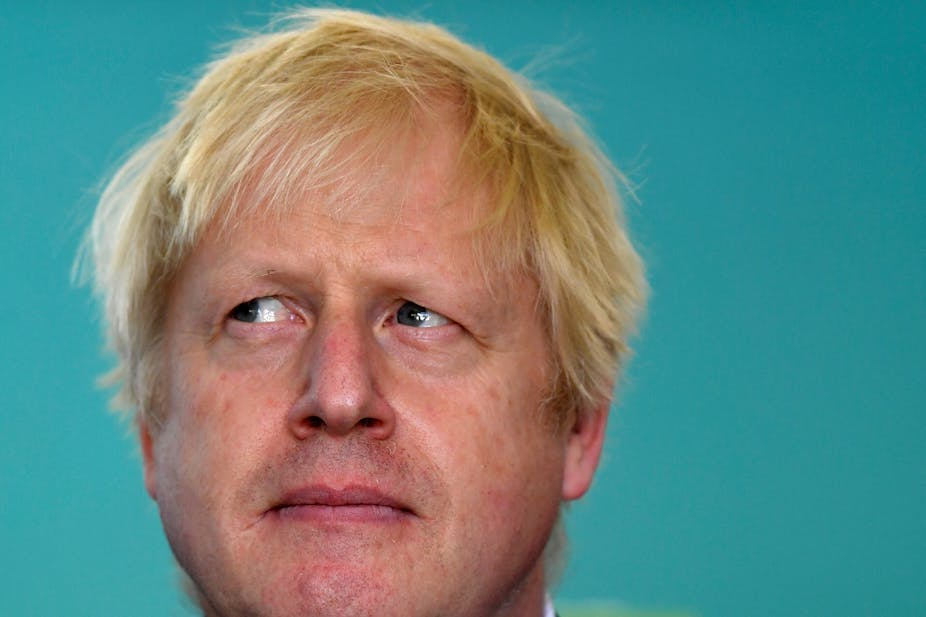“Statecraft” is not a term that springs to mind when I think about Boris Johnson. So when I heard him speaking in Dublin recently, expounding his theory that dropping out of the EU without a deal would be “a failure of statecraft for which we would all be responsible”, my political antennae started to twitch with more than a little vigour. Why inject this specific term into the debate at this specific moment?
Put very simply, the notion of “statecraft” relates to the skillful management of the affairs of the state. It is therefore indelibly linked to the maintenance of political power through legitimate and illegitimate means.
From an intellectual and historical perspective Machiavelli’s The Prince (1532) provides one of the earliest treatise on effective statecraft. From a very different perspective, Walter Bagehot’s The English Constitution (1867) remains pertinent today due to the manner in which it lifted the lid on the inter-woven and essentially statecraft-related relationships through which the country was governed. More recently, political scientist Jim Bulpitt’s “statecraft thesis” explored how leaders seek to win elections by demonstrating a necessary degree of governing competence in office.
All of this is why I sat up when Johnson spoke about the “failure of statecraft” just as he was about to prorogue parliament. It made me wonder if, despite the semblance of chaos, there is a more refined approach to statecraft going on right under our noses.
Cat-and-mouse
Johnson is in a pickle (not for the first time). He has set himself up as the no nonsense strong leader who would rather be “dead in a ditch” than go back to Brussels and ask for another Brexit extension. The prickly problem is that parliament has underlined that the UK is a parliamentary state in both theory and practice by working around his prorogation to rapidly produce legislation to force him to seek a Brexit extension rather than allow a no-deal departure on October 31. And if a prime minister cannot control the House of Commons they really can’t control much at all.
What we have witnessed in recent weeks is the most amazing game of constitutional cat-and-mouse. The legislature and executive have been locked into an unedifying process of outflank and counterflank. Constitutional niceties have been cast out.
The “failure of statecraft” thesis propounded by Johnson is part of this game. Confounded by Westminster, the prime minister’s latest move is to try to discredit the whole system.
Johnson’s statecraft
It is, of course, possible to argue that democratic politics is working. The divisions and tensions at Westminster are simply reflecting the existence of deep divides across the country. By inflaming the narrative that politics is not working, Johnson seeks to not only place the blame for having to request an extension onto “them” (the elite, the establishment, opponents and critics, and so on) but also to frame himself as the political saviour of an ailing system that urgently requires a strong leader. In this context, nostalgia for a golden past possesses an ironic position at the heart of a vision of the future.

But is it really possibly to identify a Borisonian statecraft or is it closer to the truth to see Johnson as little more than a crafty politician?
The answer is that it is far too soon to tell. But it isn’t too soon to suggest that underneath that often bumbling and buffoon-like exterior there is in fact an incredibly ambitious and strategically calculating politician.
In the current context of anti-political sentiment there is a wave of anger, frustration and outrage just waiting to be funnelled as fuel by those who are happy to engage in populist pitchfork politics. If Johnson has a vision of successful statecraft then it is unquestionably tied to a populist strategy that does indeed seek to fuel and funnel frustration. The “failure of statecraft” narrative is simply part of this ploy.
If this is correct then one might also legitimately ask if the strategy seems to be working. This is where Johnson may well be being far more crafty than many people appear to realise. A focus on the day-to-day – if not hour-by-hour, minute-by-minute – constitutional games risks not being able to see the wood for the trees. The main objective for Johnson is securing a general election, and being forced to eat humble pie and request an extension may well be a price worth paying.
Unless the opposition parties come together in a strategic alliance, which is highly unlikely, the “Remain” vote in that election is likely to be shared across a number of parties. The “Leave” vote, by contrast, will be concentrated behind the Tories, with Johnson soaking up disaffection and securing a majority. “What about the Brexit Party?” you may well ask. Johnson could well do a deal with Farage, and at the same time gain even greater control over the influx of new Tory MPs.
Populism as a mode of statecraft may actually work very well for Johnson. It’s democracy that will carry the cost.

